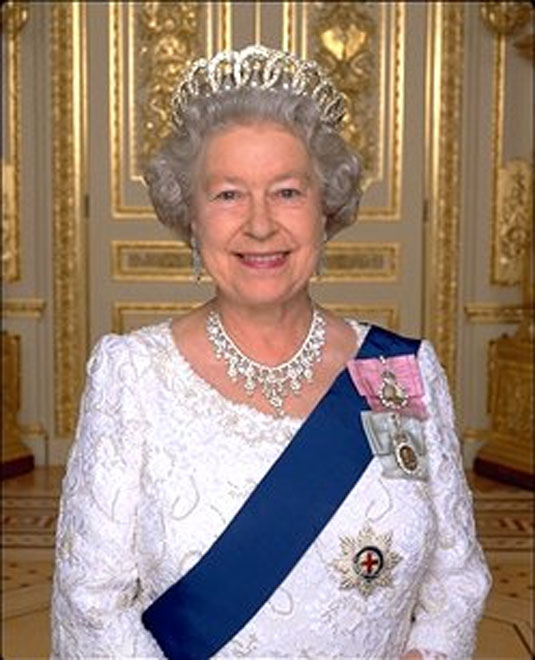Gordon Brown has put economic recovery at the heart of his final set of plans before the next general election, BBC reported.
Key measures in the Queen's Speech include a crackdown on excesses in the City and a legal obligation to halve the budget deficit within four years.
There will also be free social care for the neediest pensioners in England.
But with an election due by June, the opposition say few of the planned bills will have time to become law and say it is effectively a Labour manifesto.
BBC Political Editor Nick Robinson said the speech signalled the start of the general election campaign, with Business Secretary Lord Mandelson and other senior ministers even holding an "election-style news conference" at Labour Party HQ, ahead of it.
Conservative leader David Cameron and Liberal Democrat leader Nick Clegg will deliver their response to the Queen's Speech in the House of Commons later.
Unveiling the government's programme in the House of Lords, the Queen said: "My government's overriding priority is to ensure sustained growth to deliver a fair and prosperous economy for families and businesses, as the British economy recovers from the global economic downturn.
"Through active employment and training programmes, restructuring the financial sector, strengthening the national infrastructure and providing responsible investment, my government will foster growth and employment."
It is a slimmer programme than normal, with 10 new bills, three carried over from the previous session and two draft bills - but with an expected 70 to 80 days of parliamentary business remaining before Mr Brown calls a general election, the government will still be in a race against time to get all of its programme through.
Planned laws include a Financial Services and Business Bill to prevent bankers who take "reckless" risks from getting bonuses and a Fiscal Responsibility Bill, aimed at halving the budget deficit - although the full details of how this will work will be spelled out in next month's pre-Budget report.
The speech also includes a bill containing guarantees about children's schooling in England, including extra tuition for pupils who fall behind and support for gifted learners.
Meanwhile, 400,000 elderly people will be promised help with care in their own homes, as part of the Social Care Bill, which applies to England only.
The government sees this policy, which will cost £670m a year and be funded from savings elsewhere in the NHS budget, as the first step towards a national care service - and a key election dividing line with the Conservatives, who are proposing an optional £8,000 one-off payment on retirement to cover future care costs.
The Queen's Speech also includes the controversial Equality Bill, carried over from the last session, which would impose a duty across the public sector in England, Scotland and Wales "to narrow the gap between rich and poor" - and force businesses employing more than 250 people to reveal gender pay differences.
A Health Bill, which would have introduced maximum waiting times for some NHS surgery and consultations, has been left out of the programme, but the changes will be brought in through secondary legislation amending the new NHS constitution.
The government has also carried over a piece of legislation restating its aspiration to abolish child poverty by 2020 - despite missing its targets in this area so far.
The Flood and Water Management Bill, following the disasters of summer 2007, would give local authorities in England and Wales the lead responsibility for managing the risk of future flooding.
There is also a bill to cut down on the paperwork police officers have to fill in when carrying out stop and search operations, in England and Wales, and to extend the collection of DNA from sex offenders.
The crime and security bill also includes compulsory licences for wheelclampers and, following the deaths of several children, compulsory safe storage of air guns.
Commons leader Harriet Harman has said "most" of the proposed bills will be passed before the next election.
But Conservative leader David Cameron dismissed the speech as a "political exercise" and a "waste of time".
He told BBC News: "This Queen's Speech is not about the good of the country, this Queen's Speech is going to be about trying to save the Labour Party. It's a whole lot of bills just legislating some intent but not actually doing anything."
The Liberal Democrats called for the Queen's Speech to be cancelled so that MPs could concentrate on cleaning-up their expenses and reforming the political system.
Treasury spokesman Vince Cable said the speech displayed a "complete lack of reality" and was a "long list of bills which are never going to see the light of day".
He said the two finance bills, on bankers' bonuses and the national deficit, were "completely unnecessary" as they merely enshrined in law things the government "should be doing anyway".
"It is simply a gimmick, but it is actually discrediting the process of legislation," he told the BBC News Channel.
Elfyn Llywd, Plaid Cymru's leader at Westminster, said the Queen's Speech "did not go far enough" and should have included legislation on youth unemployment, equipment shortages in Afghanistan and forces' housing.
Angus Robertson, leader of the SNP at Westminster, said there was little in the speech for Scotland and it was "all about positioning for the general election".
But Lord Mandelson rejected accusations that the government was using the Queen's Speech for party political ends, saying: "The key message is the same as with every Queen's Speech, this is about governing, it's not about electioneering."
Queen sets out UK government plans
Gordon Brown has put economic recovery at the heart of his final set of plans before the next general election.






